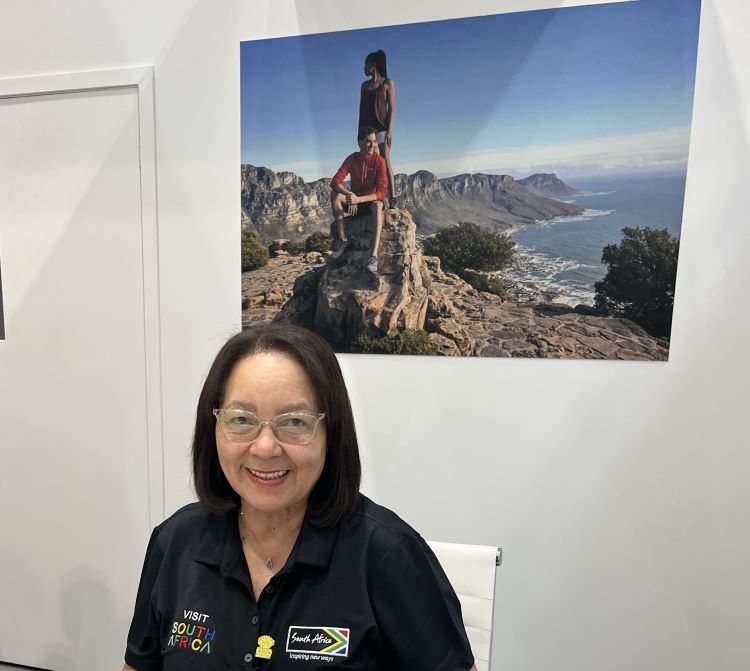Three experts from three key source markets – United States of America, United Kingdom and Italy – discuss where the inbound opportunities for Indian travel agents lie and how they can tap them. Each expert believes in the strength of India as a tourist destination and urges the industry and agents to build upon and smartly market the country’s advantages.
Hazel Jain
TravTalk’s 5th Digital Conclave titled ‘Show me the money’ held on August 7, 2020 conducted two power-packed sessions focused exclusively on opportunities and profitability. The first session saw three international panellists from three major source markets sharing some interesting insights on the changing market behaviours and the right marketing approach to tap the opportunities that they provide.
THE USA MARKET
Think quality, not quantity
Focusing on inbound traffic from the USA, Alan Merschen, Partner (International Insights) at MMGY Global and Chairperson, Travel Consul, shared some insights on the US travel market trends. He said that of the total population of 329 million, more than 45 per cent of Americans have passports now. This means that there are more Americans with passports than the Germans. “Consumers here are using travel agents more. Last year, our survey said there was a 10 per cent increase in this, especially in the high-end of the business. And there is a consolidation with the consortia. Eight out of 10 agencies belong to one of the major consortia in the US. If we are going to see one big shift, 40,000 (which is roughly 38 per cent) of the travel agencies are home-based. Our prediction is that within two years, a vast majority will be independent contractors working from home,” he said. Merschen is also Founder of Myriad.
Keeping relationships strong
There is a slight shift in the US market – they want timely data and health certificates. “The priority for the US agencies was strengthening customer service. We know that it costs six times more money to acquire a new customer than keep an existing one. So the focus was on that as well as training programmes. Almost half of the respondents were likely to consider new hotels – another strong indicator of an openness that we haven’t seen before. Over 90 per cent will investigate new destinations. The important thing to remember is, this will probably be through consumers making the requests,” Merschen added.
Some other key stats he shared included: 64 per cent of the USTOA tour operators have seen an increase in bookings and most of their bookings are for international destinations. “These are long-haul all the way, but that’s an important element for us to look at. One out of three sees a potential restart for Asia within the first quarter of 2021,” he shared.
Another essential update Merschen reveals is that while agencies in the US are realising that there aren’t going to be Fam trips anymore, they’re okay with that because they know they have to focus on their business now.
“They do think promotions will be important, but please don’t discount your price – give us better value because it will take you longer to bring that up again. Another thing we are seeing is the lengthening of the travel booking window. Many of the US tour operators are now taking bookings for 2022, which will put pressure on operators to give pricing. Once again, health safety is the new luxury,” he advises.
Consumer insights from the US
Merschen shares some results from the USTOA survey done at the end of the year 2019. It said that 64 per cent of high-end consumers want to go to Asia and those who do – 21 per cent were interested specifically in India. This was more than the Philippines and Sri Lanka. “Whether you are a hotel or a destination, it is good to remember that 65 per cent of the consumers believe that the destinations they visit say a lot about who they are. So, we need to stop thinking of hotels or destinations as just places and give them personalities. How we do that is the big challenge,” he adds.
Factors deciding the impact of COVID-19 is not price; it’s a question of safety. The good news is that Americans are still searching for travel opportunities and interest for international travel was up almost 40 per cent between May and June 2020. Moreover, there is much more postponing trips for a year rather than cancelling them. Six out of 10 are still dreaming about a vacation internationally. Six out of 10 are also saying that cleanliness measures are important and getting that information across to them is key. “They are open to hearing about it now. It’s okay to market now – they just want to hear the story,” he says.
What will the future hold?
“I wish we could tell when this epidemic will be over. But we do want you to challenge yourself. There is not going to be a ‘recovery’ because it’s not going to be like the way it was, it’s going to be different. I am a student of Darwin and he never said it is the survival of the strongest or the fittest. It will be those who adapt to change. And the more we learn to adapt to change, the better,” Merschen advises, adding, “Remember, airlines need flights both ways. I think it’s the biggest opportunity to be created. This is the time for every tourism product to think differently than they ever have before. It is such an important time that we all as an industry work co-operatively. Keep communicating. It is not the time to ‘wait and see’. You don’t need to have a campaign, but you need to have a presence because your competitors do. Think quality not quantity, think length of stay, fewer trips but longer trips, and India can offer that. Don’t focus on how many people you can get from America; think about how much money you will get from the Americans.”
THE UK MARKET
India’s moment to shine
Sharing an update on the UK market, Amanda Hills, Founder and CEO, Hills Balfour, says, “The UK has a long-standing relationship with India; it is the third-biggest source market after Bangladesh and the USA with 1.46 mn visitors in 2019. And there has never been a bigger opportunity for India to tap into the UK market. It is India’s moment to shine. Travellers will be looking to travel for a longer time to reduce the risk of travelling, and what India offers really matches what UK is looking for.” Hills Balfour is a leading communication agency for travel and tourism.
Hills highlights the UK traveller behaviour and says, “Travel is in our DNA and annual holidays are nearly sacrosanct to the British. Many of us will prioritise travel over any other discretionary spending. We anticipate huge growth in travel movement to places like India. And so our marketing should really drive demand and turn the spark for travelling into a flame, enabling the industry to recover faster from the UK. About 64 per cent of all UK travellers that we recently surveyed have said that those who expect to travel will expect to travel the same amount in the future. And 86 per cent reported missing taking a holiday so far this year.”
The UK travellers are starting to book and they are booking further afield. Even though they are not yet allowed to travel to certain destinations, they are booking them. “We don’t think discounting is going to be the driver in the long term. In fact, people will appreciate their holidays even more than before. Also, many of the British population have not actually been impacted by losing their jobs because of furloughing under the government schemes. This means that we have more disposable incomes than we have had for some time,” Hills examines.
The good news is that the travel agent tracker reported 87 per cent of the respondents are now taking new booking inquiries from mid-July at an increase of eight per cent week-on-week. There are also some positive happenings on the UK trade landscape. About 53 per cent of its tour operators are using tourist boards to help them cope during the crisis. “Tourist boards have never had a more important role among the UK tour operators. Almost 65 per cent of operators in our survey said the tourist boards presenting useful and timely data will help them recover. So, to all tourist boards – if you want to get the UK business, you need to start communicating with our travel trade,” Hills adds.
She echoes Merschen’s sentiment that there will be fewer numbers going abroad but going for a longer time to decrease risks. Instead of spending on three or four holidays a year, the UK traveller will actually take just one long one. “This is where I think the Indian product matches this demand. The luxury market has been the least impacted. We are seeing some incredible activity in this market in private planes, private villas, etc., and we believe it’s going to be the first to recover. The other demographic which is going to see a massive uptick is the UK millennials and the Gen Zs. They are the ones who are least anxious to travel. We also see a big uptick in multi-generational family holidays which will massively match the Indian product, as well as VFR travel,” Hills adds.This is why she believes that the pandemic is a massive opportunity for India. “The perception of India is so positive, we have such strong ties, but I also think not enough people know India well. Now is the big opportunity to tell them. New airlift out of UK is a very big opportunity for India. It is India’s moment to shine, so don’t go dark. Now is the time to market to the international visitor because you are going to get a lot more money and you don’t need to cut your costs,” Hills suggests.
THE ITALIAN MARKET
It is time to re-invent
As an expert on the Italian market, Massimo Tocchetti, President of marketing and communications agency AIGO, says, “As the fourth-largest European market for India, Italians are preferring back-to-nature activities and luxury products. With the right communication, the right marketing and the right presence in the market, you can win the battle. This is the time for India to reinvent, not just as a destination but also reinvent its relationships.” The peak season for the Italian market is its summer season.
Underlining the key regions that spend more money on travel, Tocchetti mentions the North of Italy which accounts for 65 per cent of the total travel expenditure, with Lombardy having the highest spending, followed by Lazio and Emilia Romagna. “Italians mainly look for relaxation and fun while on holiday, culture, natural attractions. Almost 31% of the Italians book travel through the traditional channel while 37% book online and a majority of 71% go for a mix,” he reveals. Tocchetti also shares results of the second round of survey conducted after the pandemic between June-July across 14 international markets. “While in May, training was the most important activity for travel professionals, the attention in the second round switched to developing of existing products, examining new destinations, revising the business model, improving the supply base and looking for new audiences. We also saw that the consumers switched to more active behaviour from the ‘wait and see’ attitude to changing the original destinations, probably because they were looking for places less impacted by the virus or where safety measures were more reassuring. Support from DMOs is also increasingly important with regard to releasing useful and timely data, training and partnership in marketing,” he shares.
No doubt, the pandemic has modified the usual requirements of travellers and creating new needs, thereby shaping new trends. Tocchetti feels that tourism as we used to know it is undergoing a complete change. “Italians
are looking for new destinations, experiences and hotels,” he says.
Changes in distribution
There will be more flexibility, and insurance and safety highly demanded going forward. There will also be a return to traditional channels, he says. “In this emergency, we are being demonstrated how important the human component is. There is also a change in market dynamics, including digitalisation. However, around 14% are experiencing difficulty in foreseeing the change, which is understandable because unpredictable factors exist,” Tocchetti adds. SpiceJet secures slot at Heathrow
SpiceJet has secured slots at London Heathrow Airport to operate flights effective September 1, 2020. This is presently under the bubble arrangement between India and UK, and effective up to end of summer schedule i.e. October 23, 2020. It is also in discussion to secure slots for winter schedule for regular operations.
Key trends from the UK market
- Trust, health and safety are very important
- Servicing instead of selling
- Important to have a connection
- Slow travel, open spaces, wellness represent the UK outbound traveller
- Flexibility is of prime importance with booking policies
What is Travel Consul?
Travel Consul is the premium agency network around the globe with 19 different travel marketing companies. They cover over 50 global markets throughout the world with 55 offices the world over. Collectively, they have over 600 clients at the last count.
 TravTalk India Online Magazine
TravTalk India Online Magazine





